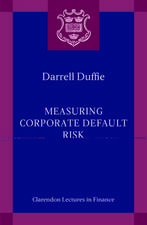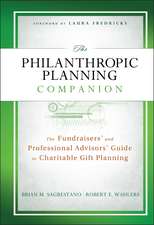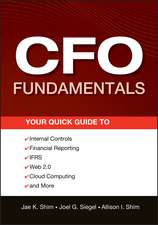Handbook of Financial Engineering: Springer Optimization and Its Applications, cartea 18
Editat de Constantin Zopounidis, Michael Doumpos, Panos M. Pardalosen Limba Engleză Paperback – 8 oct 2011
This comprehensive edited volume discusses the most recent advances within the field of financial engineering, focusing not only on the description of the existing areas in financial engineering research, but also on the new methodologies that have been developed for modeling and addressing financial engineering problems.
This book is divided into four major parts, each covering different aspects of financial engineering and modeling such as portfolio management and trading, risk management, applications of operation research methods, and credit rating models.
Handbook of Financial Engineering is intended for financial engineers, researchers, applied mathematicians, and graduate students interested in real-world applications to financial engineering.
| Toate formatele și edițiile | Preț | Express |
|---|---|---|
| Paperback (1) | 1226.90 lei 6-8 săpt. | |
| Springer Us – 8 oct 2011 | 1226.90 lei 6-8 săpt. | |
| Hardback (1) | 1231.47 lei 6-8 săpt. | |
| Springer Us – 19 aug 2008 | 1231.47 lei 6-8 săpt. |
Din seria Springer Optimization and Its Applications
- 15%
 Preț: 642.00 lei
Preț: 642.00 lei - 15%
 Preț: 664.61 lei
Preț: 664.61 lei - 18%
 Preț: 961.55 lei
Preț: 961.55 lei - 17%
 Preț: 360.79 lei
Preț: 360.79 lei - 13%
 Preț: 458.08 lei
Preț: 458.08 lei -
 Preț: 336.79 lei
Preț: 336.79 lei - 18%
 Preț: 787.91 lei
Preț: 787.91 lei - 17%
 Preț: 397.79 lei
Preț: 397.79 lei - 8%
 Preț: 337.37 lei
Preț: 337.37 lei - 18%
 Preț: 1133.30 lei
Preț: 1133.30 lei - 15%
 Preț: 646.43 lei
Preț: 646.43 lei - 15%
 Preț: 647.40 lei
Preț: 647.40 lei -
 Preț: 400.47 lei
Preț: 400.47 lei -
 Preț: 379.86 lei
Preț: 379.86 lei -
 Preț: 383.90 lei
Preț: 383.90 lei -
 Preț: 388.48 lei
Preț: 388.48 lei -
 Preț: 546.26 lei
Preț: 546.26 lei - 15%
 Preț: 647.40 lei
Preț: 647.40 lei -
 Preț: 390.25 lei
Preț: 390.25 lei - 15%
 Preț: 649.87 lei
Preț: 649.87 lei - 24%
 Preț: 611.55 lei
Preț: 611.55 lei - 18%
 Preț: 972.62 lei
Preț: 972.62 lei - 20%
 Preț: 585.91 lei
Preț: 585.91 lei - 15%
 Preț: 710.09 lei
Preț: 710.09 lei - 18%
 Preț: 742.61 lei
Preț: 742.61 lei - 15%
 Preț: 658.22 lei
Preț: 658.22 lei - 15%
 Preț: 659.02 lei
Preț: 659.02 lei - 18%
 Preț: 745.15 lei
Preț: 745.15 lei - 15%
 Preț: 705.34 lei
Preț: 705.34 lei
Preț: 1226.90 lei
Preț vechi: 1496.22 lei
-18% Nou
Puncte Express: 1840
Preț estimativ în valută:
234.76€ • 245.77$ • 194.25£
234.76€ • 245.77$ • 194.25£
Carte tipărită la comandă
Livrare economică 05-19 aprilie
Preluare comenzi: 021 569.72.76
Specificații
ISBN-13: 9781441945730
ISBN-10: 1441945733
Pagini: 512
Ilustrații: XVIII, 494 p. 25 illus.
Dimensiuni: 155 x 235 x 27 mm
Greutate: 0.71 kg
Ediția:2008
Editura: Springer Us
Colecția Springer
Seria Springer Optimization and Its Applications
Locul publicării:New York, NY, United States
ISBN-10: 1441945733
Pagini: 512
Ilustrații: XVIII, 494 p. 25 illus.
Dimensiuni: 155 x 235 x 27 mm
Greutate: 0.71 kg
Ediția:2008
Editura: Springer Us
Colecția Springer
Seria Springer Optimization and Its Applications
Locul publicării:New York, NY, United States
Public țintă
ResearchCuprins
Portfolio Management and Trading.- Portfolio Selection in the Presence of Multiple Criteria.- Applications of Integer Programming to Financial Optimization.- Computing Mean/Downside Risk Frontiers: The Role of Ellipticity.- Exchange Traded Funds: History, Trading, and Research.- Genetic Programming and Financial Trading: How Much About "What We Know".- Risk Management.- Interest Rate Models: A Review.- Engineering a Generalized Neural Network Mapping of Volatility Spillovers in European Government Bond Markets.- Estimating Parameters in a Pricing Model with State-Dependent Shocks.- Controlling Currency Risk with Options or Forwards.- Operations Research Methods in Financial Engineering.- Asset Liability Management Techniques.- Advanced Operations Research Techniques in Capital Budgeting.- Financial Networks.- Mergers, Acquisitions, and Credit Risk Ratings.- The Choice of the Payment Method in Mergers and Acquisitions.- An Application of Support Vector Machines in the Prediction of Acquisition Targets: Evidence from the EU Banking Sector.- Credit Rating Systems: Regulatory Framework and Comparative Evaluation of Existing Methods.
Recenzii
From the reviews:
"Handbook of Financial Engineering is a collection of papers from various areas of the field including Portfolio Management and Trading, Risk Management, Operations Research Methods in Financial Engineering, and Mergers, Acquisitions and Credit Risk Ratings. The papers are in narrative form, discussing the main current issues in the selected areas. … Discussions are at the introductory level, which should seem very inviting to students and readers who are new to the field and need an overview of the methods currently used." (Ita Cirovic Donev, The Mathematical Association of America, September, 2008)
"Handbook of Financial Engineering is a collection of papers from various areas of the field including Portfolio Management and Trading, Risk Management, Operations Research Methods in Financial Engineering, and Mergers, Acquisitions and Credit Risk Ratings. The papers are in narrative form, discussing the main current issues in the selected areas. … Discussions are at the introductory level, which should seem very inviting to students and readers who are new to the field and need an overview of the methods currently used." (Ita Cirovic Donev, The Mathematical Association of America, September, 2008)
Textul de pe ultima copertă
Over the past decade the financial and business environments have undergone significant changes. During the same period several advances have been made within the field of financial engineering, involving both the methodological tools as well as the application areas.
This comprehensive edited volume discusses the most recent advances within the field of financial engineering, focusing not only on the description of the existing areas in financial engineering research, but also on the new methodologies that have been developed for modeling and addressing financial engineering problems. This book is divided into four major parts, each covering different aspects of financial engineering and modeling such as portfolio management and trading, risk management, applications of operation research methods, and credit rating models.
Handbook of Financial Engineering is intended for financial engineers, researchers, applied mathematicians, and graduate students interested in real-world applications to financial engineering.
This comprehensive edited volume discusses the most recent advances within the field of financial engineering, focusing not only on the description of the existing areas in financial engineering research, but also on the new methodologies that have been developed for modeling and addressing financial engineering problems. This book is divided into four major parts, each covering different aspects of financial engineering and modeling such as portfolio management and trading, risk management, applications of operation research methods, and credit rating models.
Handbook of Financial Engineering is intended for financial engineers, researchers, applied mathematicians, and graduate students interested in real-world applications to financial engineering.
Caracteristici
A comprehensive handbook including self-contained chapters Emphasis on the operational tools that can be used for decision making Chapters written by distinguished contributors in the financial engineering field Special focus on methodologies that can be used to address financial engineering problems, i.e., statistical and econometric approaches, multiple criteria decision making, and fuzzy sets
















